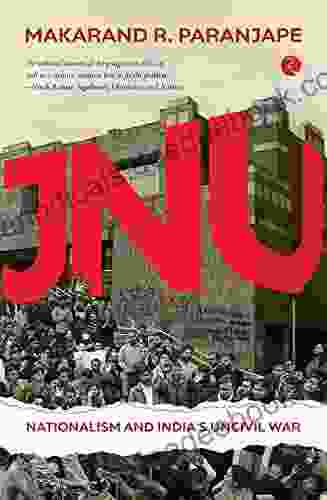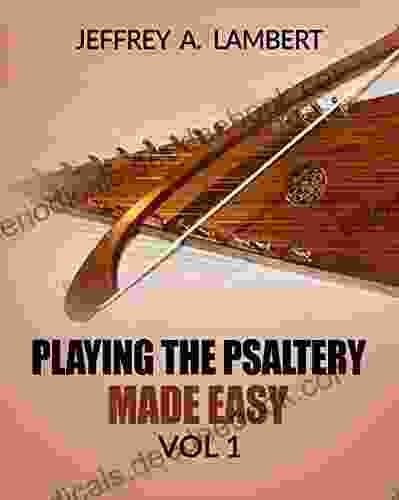JNU Nationalism and India's Uncivil War: A Comprehensive Analysis of Recent Events

Jawaharlal Nehru University (JNU),a prestigious Indian university, has become a flashpoint for intense political debate and controversy in recent years. The rise of nationalism and the erosion of civil liberties have culminated in a volatile atmosphere on campus, raising concerns about the future of dissent and free speech in India. This comprehensive article delves into the complexities of JNU nationalism, examining its implications for India's political landscape and the potential for further conflict amidst the ongoing debate on free speech and dissent.
4.6 out of 5
| Language | : | English |
| File size | : | 3721 KB |
| Text-to-Speech | : | Enabled |
| Screen Reader | : | Supported |
| Enhanced typesetting | : | Enabled |
| Word Wise | : | Enabled |
| Print length | : | 292 pages |
The Rise of Nationalism in JNU
JNU has long been known for its vibrant student culture and its nurturing of intellectual and political engagement. However, in recent years, the campus has witnessed a surge in nationalist sentiments, fueled by a range of factors including the rise of right-wing politics in India, the increasing influence of social media, and the glorification of the Indian Armed Forces. This surge has manifested in various forms, from the display of nationalistic flags and symbols to the growing popularity of student groups affiliated with the ruling Bharatiya Janata Party (BJP).
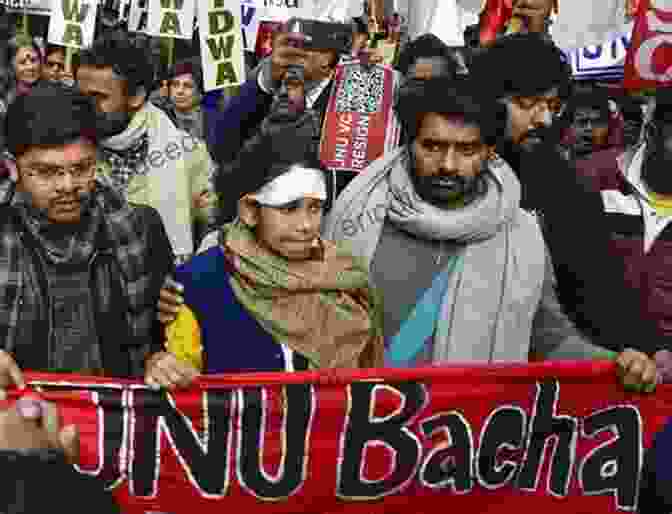
Erosion of Civil Liberties
The rise of nationalism in JNU has coincided with an erosion of civil liberties on campus. Student activists, particularly those perceived as being critical of the government or the ruling party, have faced harassment, intimidation, and even violence. In 2016, a group of students who had organized an event to commemorate the death anniversary of Afzal Guru, a Kashmiri separatist who was convicted of attacking the Indian Parliament, were charged with sedition and arrested. The incident sparked widespread protests and raised concerns about the suppression of free speech and dissent in India.
The erosion of civil liberties has extended beyond the confines of the campus. In recent years, the Indian government has introduced several laws and policies that have curtailed free speech and dissent. These include the Sedition Law, which criminalizes any statement that could incite hatred or disaffection towards the government, and the Foreign Contribution Regulation Act (FCRA),which restricts the funding of NGOs that are critical of the government. These laws have been used to target activists, journalists, and human rights organizations, creating a climate of fear and self-censorship.
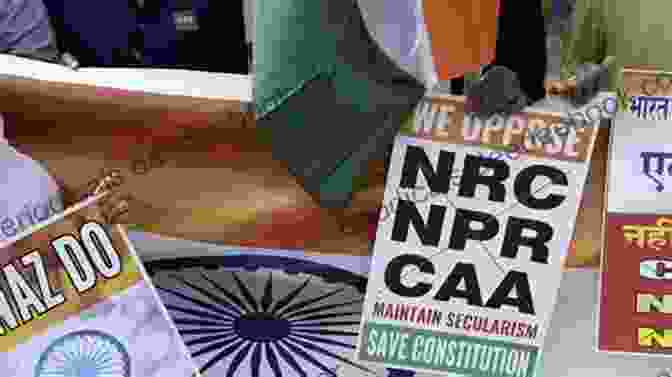
The Potential for Further Conflict
The rise of nationalism and the erosion of civil liberties in JNU have created a volatile atmosphere on campus and in India as a whole. The ongoing debate on free speech and dissent has polarized society and created the potential for further conflict. Nationalist groups have become increasingly intolerant of dissent, while those who oppose nationalism face the threat of harassment and violence.
The situation in JNU is a microcosm of the challenges facing India's democracy. The rise of authoritarianism, the erosion of civil liberties, and the suppression of dissent pose a serious threat to the country's democratic foundations. If these trends continue, India could descend into an uncivil war, characterized by violence, polarization, and the suppression of dissent.
The events unfolding in JNU are a stark reminder of the fragility of democracy and the importance of protecting civil liberties. The rise of nationalism and the erosion of civil liberties have created a volatile atmosphere in India, with the potential for further conflict. It is crucial that all stakeholders, including the government, civil society, and the judiciary, work together to protect free speech and dissent, and to ensure that India remains a vibrant and democratic society.
Author's Note: This article is not intended to endorse or support any particular political ideology or group. It is intended to provide a balanced and objective analysis of the recent events and controversies surrounding JNU and the implications for India's political landscape.
4.6 out of 5
| Language | : | English |
| File size | : | 3721 KB |
| Text-to-Speech | : | Enabled |
| Screen Reader | : | Supported |
| Enhanced typesetting | : | Enabled |
| Word Wise | : | Enabled |
| Print length | : | 292 pages |
Do you want to contribute by writing guest posts on this blog?
Please contact us and send us a resume of previous articles that you have written.
 Book
Book Page
Page Story
Story Genre
Genre Reader
Reader Paperback
Paperback E-book
E-book Paragraph
Paragraph Sentence
Sentence Bibliography
Bibliography Preface
Preface Synopsis
Synopsis Footnote
Footnote Scroll
Scroll Codex
Codex Bestseller
Bestseller Classics
Classics Reference
Reference Encyclopedia
Encyclopedia Dictionary
Dictionary Narrator
Narrator Character
Character Resolution
Resolution Librarian
Librarian Catalog
Catalog Borrowing
Borrowing Stacks
Stacks Archives
Archives Periodicals
Periodicals Lending
Lending Reserve
Reserve Reading Room
Reading Room Special Collections
Special Collections Interlibrary
Interlibrary Study Group
Study Group Thesis
Thesis Dissertation
Dissertation Storytelling
Storytelling Reading List
Reading List Textbooks
Textbooks David Joel Stevenson
David Joel Stevenson David N Ammons
David N Ammons S Enders Wimbush
S Enders Wimbush Shelley Stevens
Shelley Stevens Alexander August
Alexander August Kirsten Cather
Kirsten Cather Mark Denote
Mark Denote Jenessa Fayeth
Jenessa Fayeth Donovan Russell
Donovan Russell Anthony C Winkler
Anthony C Winkler Leslie C Halpern
Leslie C Halpern D K Holmberg
D K Holmberg Richard Middleton
Richard Middleton Benjamin Joseph
Benjamin Joseph Florent Catanzaro
Florent Catanzaro Elizabeth Ellis
Elizabeth Ellis Samuel M Katz
Samuel M Katz Maggie Pace
Maggie Pace Carol Gilham Jones
Carol Gilham Jones Sascha Hoffmann
Sascha Hoffmann
Light bulbAdvertise smarter! Our strategic ad space ensures maximum exposure. Reserve your spot today!
 Clinton ReedFollow ·16.4k
Clinton ReedFollow ·16.4k William WordsworthFollow ·19.2k
William WordsworthFollow ·19.2k Sidney CoxFollow ·12.4k
Sidney CoxFollow ·12.4k Ira CoxFollow ·15.1k
Ira CoxFollow ·15.1k Miguel de CervantesFollow ·19.2k
Miguel de CervantesFollow ·19.2k Jackson BlairFollow ·16k
Jackson BlairFollow ·16k Ralph TurnerFollow ·16.2k
Ralph TurnerFollow ·16.2k Fred FosterFollow ·10k
Fred FosterFollow ·10k

 Anton Chekhov
Anton ChekhovClarinet Fundamentals: A Systematic Fingering Course for...
Welcome to the exciting world of...

 Gage Hayes
Gage HayesSea Prayer: A Haunting and Heartbreaking Story of...
Sea Prayer, the latest...
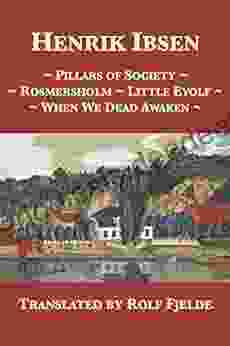
 Henry Green
Henry GreenPillars of Society Rosmersholm Little Eyolf When We Dead...
Henrik Ibsen, the towering...

 Robert Reed
Robert Reed10 For 10 Sheet Music Classical Piano Favorites: A...
Learning to play the...
4.6 out of 5
| Language | : | English |
| File size | : | 3721 KB |
| Text-to-Speech | : | Enabled |
| Screen Reader | : | Supported |
| Enhanced typesetting | : | Enabled |
| Word Wise | : | Enabled |
| Print length | : | 292 pages |


